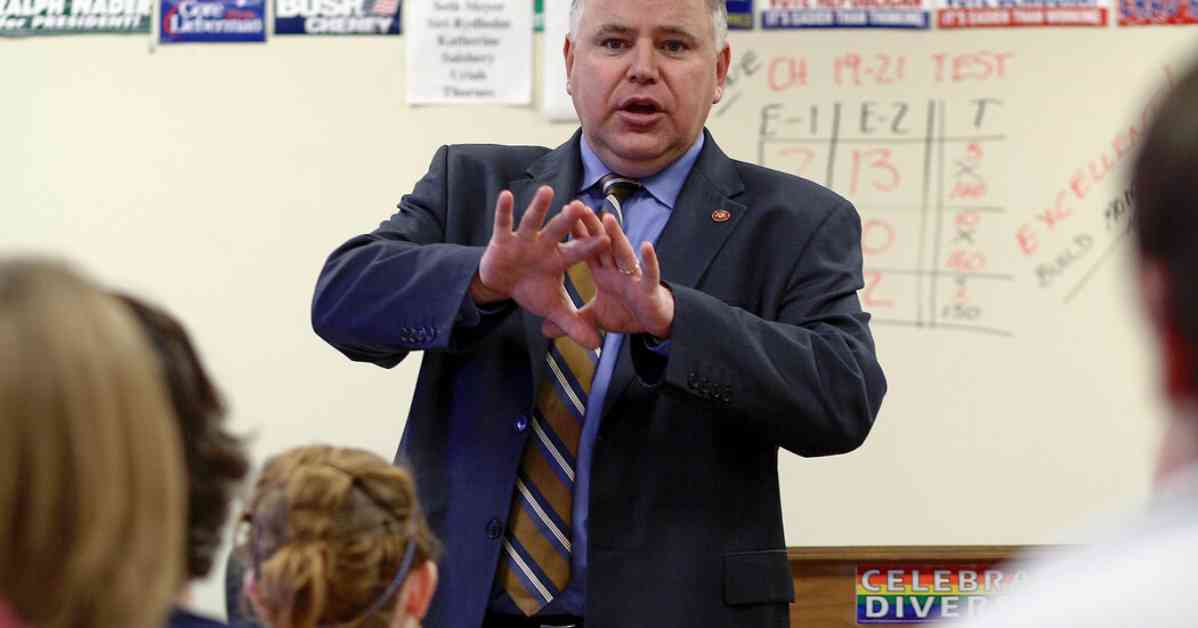Tim Walz’s High School Project Predicted Rwanda Genocide
In 1993, Tim Walz, now the Democratic vice-presidential candidate and Minnesota governor, tasked his high school geography students in Alliance, Nebraska with a unique class project. He asked them to apply their knowledge of the Holocaust to predict which country was most at risk for genocide. To the shock of many, the students accurately predicted Rwanda, a nation that would soon be engulfed in a devastating genocide.
The project, which gained renewed attention in recent years, highlights the impact that educators like Mr. Walz can have on their students. Through innovative teaching methods and a focus on real-world issues, teachers can inspire young minds to think critically and engage with important global events.
Impact of the Rwanda Genocide Prediction
The prediction made by Mr. Walz’s students in 1993 proved to be eerily accurate. Just twelve months later, the world watched in horror as Rwanda descended into one of the most brutal genocides in history. The fact that a group of high school students from a small town in Nebraska was able to foresee such a catastrophic event raises important questions about the role of education in promoting awareness and understanding of global issues.
Mr. Walz’s decision to incorporate the study of the Holocaust into his geography curriculum not only provided his students with valuable historical context but also encouraged them to apply that knowledge to real-world situations. This project served as a powerful example of how education can empower young people to critically analyze complex issues and make informed predictions about the future.
Continued Commitment to Holocaust Education
Following his impactful project in Alliance, Nebraska, Mr. Walz continued to prioritize Holocaust education throughout his career. As a graduate student at Minnesota State University, Mankato, he wrote his thesis on Holocaust education, demonstrating his deep commitment to teaching this important history.
In his role as governor of Minnesota, Mr. Walz signed a bill requiring high schools and middle schools to include lessons on the Holocaust and other genocides in their curricula. By advocating for comprehensive education on these historical atrocities, Mr. Walz has shown a dedication to ensuring that future generations understand the consequences of hatred and intolerance.
The impact of Mr. Walz’s high school project extends far beyond the walls of his classroom. By encouraging his students to grapple with difficult questions about genocide and human rights, he instilled in them a sense of moral responsibility and a commitment to promoting peace and justice in the world.
As the Democratic vice-presidential nominee, Mr. Walz’s dedication to education and his ability to inspire young people to engage with pressing global issues make him a unique and influential figure in American politics. His innovative approach to teaching and his emphasis on empathy and understanding serve as a powerful example for educators and policymakers alike.
In conclusion, Tim Walz’s high school project predicting the Rwanda genocide serves as a powerful reminder of the impact that educators can have on shaping the minds of future generations. By challenging his students to think critically about history and its implications for the present, Mr. Walz inspired them to make meaningful connections between past events and contemporary issues. His commitment to Holocaust education and his advocacy for teaching about genocides reflect a deep-seated belief in the power of education to promote empathy, understanding, and social change.














